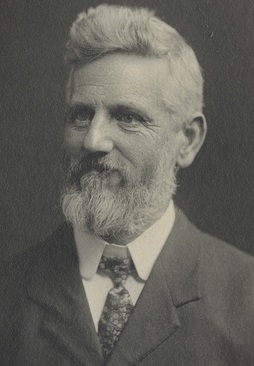
The premier of South Australia is the head of government in the state of South Australia, Australia. The Government of South Australia follows the Westminster system, with a Parliament of South Australia acting as the legislature. The premier is appointed by the governor of South Australia, and by modern convention holds office by virtue of their ability to command the support of a majority of members of the lower house of Parliament, the House of Assembly.

Sir John William Downer, KCMG, KC was an Australian politician who served two terms as Premier of South Australia, from 1885 to 1887 and again from 1892 to 1893. He later entered federal politics and served as a Senator for South Australia from 1901 to 1903. He was the first of four Australian politicians from the Downer family dynasty.

The Leader of the Opposition in South Australia is the leader of the largest minority political party or coalition of parties, known as the Opposition, in the House of Assembly of the Parliament of South Australia. By convention, the leader of the opposition is a member of the House of Assembly. The leader acts as the public face of the opposition, and acts as a chief critic of the government and ultimately attempt to portray the opposition as a feasible alternate government. They are also given certain additional rights under parliamentary standing orders, such as extended time limits for speeches. Should the opposition win an election, the Leader of the Opposition will be nominated to become the Premier of South Australia.

Colonial elections were held in South Australia from 9 April to 23 April 1890. All 54 seats in the South Australian House of Assembly were up for election.

The 1893 South Australian colonial election was held on 15 April 1893 to elect all 54 seats in the South Australian House of Assembly.

The 1899 South Australian colonial election was held on 29 April 1899 to elect all 54 seats in the South Australian House of Assembly. In the seat of Albert, the incumbent members were elected unopposed on 12 April, and the election in the seat of Northern Territory was held on 6 May. All 54 seats in the South Australian House of Assembly were up for election. The incumbent liberal government led by Premier of South Australia Charles Kingston in an informal coalition United Labor Party (ULP) led by Lee Batchelor defeated the conservative opposition led by Leader of the Opposition John Downer. Each district elected multiple members, with voters casting multiple votes. Although the conservatives won more seats, the liberal government retained power until later that year, when new conservative leader Vaiben Louis Solomon forced the government to resign, but only held office for one week. The liberals held government until the next election through leaders Frederick Holder and John Jenkins.

The 1905 South Australian state election was held on 27 May 1905. All 42 seats in the South Australian House of Assembly were up for election. The incumbent conservative government led by Premier of South Australia Richard Butler in an informal coalition with the liberals was defeated by the United Labor Party (ULP) led by Leader of the Opposition Thomas Price. Each of the 13 districts elected multiple members, with voters casting multiple votes.
Wallaroo is a defunct electoral district that elected members to the House of Assembly, the lower house of the bicameral legislature of the Australian state of South Australia. It was established in 1875 and abolished in 1970.
East Adelaide was an electoral district of the South Australian Legislative Council from 1851 to 1857 and an electoral district of the South Australian House of Assembly from 1862 to 1902.
Colonial elections were held in South Australia on 9 March 1857. All 36 seats in the South Australian House of Assembly, and all 18 seats in the Legislative Council were up for election.
Colonial elections were held in South Australia from 8 April to 23 April 1884. All 52 seats in the South Australian House of Assembly were up for election.
Colonial elections were held in South Australia from 8 April to 27 April 1881. All 46 seats in the South Australian House of Assembly were up for election, along with six of the 18 seats in the South Australian Legislative Council.
Colonial elections were held in South Australia from 29 March to 30 April 1878. All 46 seats in the South Australian House of Assembly were up for election.
Colonial elections were held in South Australia from 10 February to 1 March 1875. All 46 seats in the South Australian House of Assembly were up for election.
Colonial elections were held in South Australia from 14 December to 27 December 1871. All 36 seats in the South Australian House of Assembly were up for election.
Colonial elections were held in South Australia from 28 March to 21 April 1870. All 36 seats in the South Australian House of Assembly were up for election.
Colonial elections were held in South Australia from 6 April to 7 May 1868. All 36 seats in the South Australian House of Assembly were up for election.
Colonial elections were held in South Australia from 20 February to 13 March 1865. All 36 seats in the South Australian House of Assembly were up for election.
Colonial elections were held in South Australia from 10 November to 28 November 1862. All 36 seats in the South Australian House of Assembly were up for election.
Colonial elections were held in South Australia from 9 March to 3 April 1860. All 36 seats in the South Australian House of Assembly were up for election.







